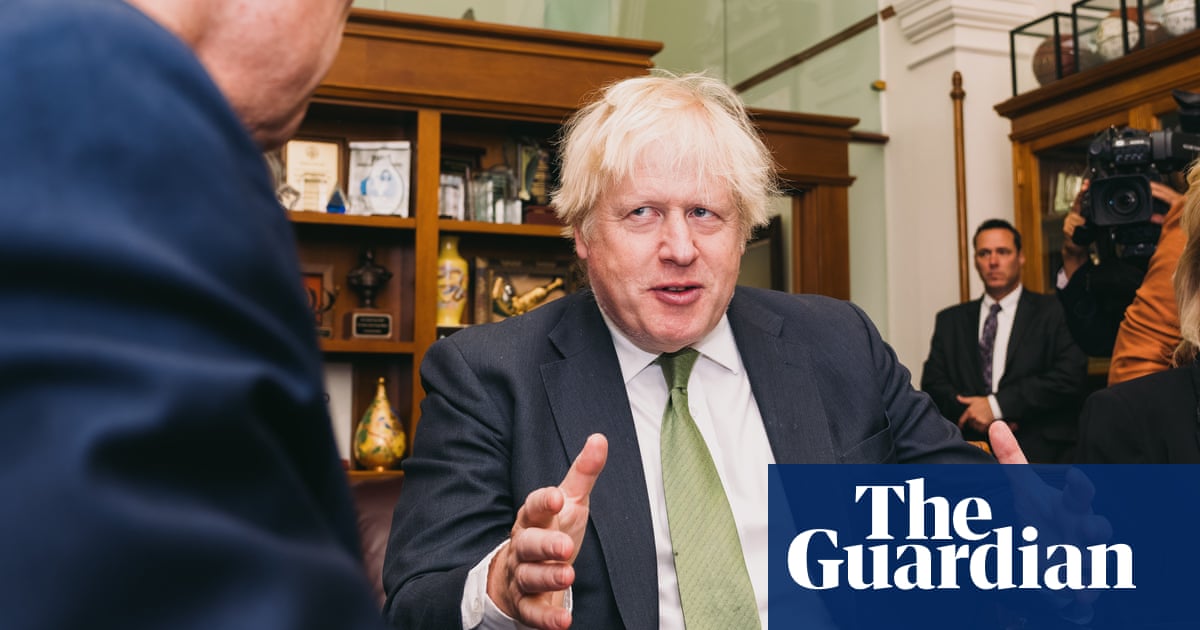
Keir Starmer has been forced to restore Labour’s credentials as a pro-national security and patriotic party, his former director of communications has said, amid criticism that Jeremy Corbyn was too soft on Russia in the aftermath of the Salisbury poisoning.
Ben Nunn, who advised Starmer for four years, said the Labour leader had brought “clarity where previously there had been ambiguity” about support for Nato, allowing the party to appear “once again a government-in-waiting” in its response to the invasion of Ukraine.
Starmer said on Sunday he fully supported the UK government’s actions, given he believed Russian president Vladimir Putin hoped to divide western countries. However, the Labour leader has called for ministers to pursue faster and tougher sanctions.
Writing in the Guardian, Nunn said Starmer was “well versed in matters of national security” as a former human rights lawyer.
Recalling the response to the Salisbury poisoning, Nunn said Starmer was “firm on where he wanted to stand” and that “Russia should be condemned for their involvement and we should fully back the action being taken by the government.”
By contrast, Nunn said, on his way to film an episode of Question Time in March 2018 with Starmer, who was then shadow Brexit secretary, an article by Corbyn was published which contained “no condemnation of Russia for the attack”.
Corbyn wrote for the Guardian at the time that either the poisonings were a “crime authored by the Russian state; or that state has allowed these deadly toxins to slip out of the control it has an obligation to exercise”.
He said that Russian authorities “must be held to account on the basis of the evidence” but added the UK should “not manufacture a division over Russia where none exists” and told people not to “rush way ahead of the evidence”.
Corbyn also cited “flawed intelligence and dodgy dossiers” from previous international crises, saying these had become “overwhelmed by emotion and hasty judgments too many times”.
“I remember my stomaching sinking. How on earth can we defend this?” Nunn wrote. He said that on the television that night, Starmer “turned up, contradicted Corbyn, condemned Russia ‘without reservation’, backed the government and demanded strong action”.
Nunn continued: “It’s often underestimated how damaging that moment was for Labour. At best the response was confused, at worst it appeared ambivalent about terrorism on British soil.
“It fed into a narrative with voters that when it came to our nation’s security Labour was soft and an even deeper sense that we were no longer a party that would stand up for Britain.
“Changing that perception has been a fundamental part of Keir’s mission since he became leader two years ago.”
Nunn said he firmly believed Starmer should deliver speeches with the union jack behind him to demonstrate Labour was a patriotic party and that its leader was “proud to stand with our nation’s flag”, and derided those who treated the measure “flippantly”.
As well as the political optics, Nunn said Starmer’s support for national security was also rooted in principles.
Corbyn’s office was contacted for comment. His allies believe his response to the Salisbury poisoning has been drastically misrepresented.
They pointed to his calls in the same article in March 2018 for a crackdown on Russian oligarchs’ influence in the UK, which are now being taken forward by the government.
Corbyn himself has also previously accused Putin of rigging elections, and accused the Russian leader of being guilty of war crimes in Syria.
The former Labour leader, who stood down in April 2020, said after the invasion of Ukraine that “we have to apply political pressure on Russia and support the public pressure that’s there in Russia to end this war and withdraw those Russian forces”.
He added: “All wars end with a political solution … Why don’t we cut out the fighting zone and go straight into the talking zone?”
Tensions have grown between the incumbent and previous Labour leadership teams over their approaches to military conflict, particularly the Stop the War coalition.
Starmer last month said the group were naive and “actively give succour to authoritarian leaders who directly threaten democracies”. But Corbyn said “there is no evidence anywhere they’ve done anything other than stand up for peace around the world.”












